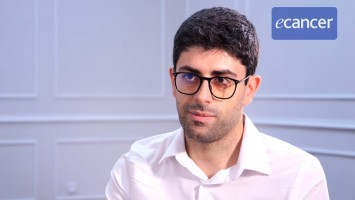WIN 2012, June 28-29, Paris, France
Shortening the timeline for clinical drug developments
Dr James Doroshow – National Cancer Institute, Bethesda, USA
Hello Dr Doroshow. So we are here at WIN where you have been discussing shortening the timelines for clinical drug development. Can you discuss a little bit about this?
Yes, we have been working very hard at the National Cancer Institute to try to develop ways to develop initial assessments of whether targeted therapies actually work in patients by perfecting assays that can be performed on very small tissue samples in biopsies taken from patients or using various imaging techniques. And doing that, we have developed some very good initial preliminary evidence that it is possible in very small clinical trials, 10, 20, 25 patients, to actually understand very early in the course of drug development whether the target is inhibited or not.
Here at WIN they are successfully developing a collaboration between pharma and academic institutes to reduce this timing; can you discuss some of the things that WIN are doing here?
Well I think that it is very important as we move into an area that, I guess, is now characterised as precision medicine, as well as personalised medicine, that it is likely over the course of the next five to ten years that individual patients and the uniqueness of their individual tumours will more and more become the norm and in that case, it will be necessary to have large consortia of organisations. In the States we are doing that in such a way that it is very unlikely in the near future that individual institutions alone will be doing early phase studies and in fact we are reconstituting our early phase programme as a network, a national network because there will be smaller groups of molecularly characterised patients, each treated, and it is very unlikely that in any one part of the US there will be enough patients with a particular mutation or the other proteomically determined variation in their tumour to actually allow a study to go forward unless it is done through groups of like patients evaluated across the country.
So some of these targeted molecules that are coming through, we’ve heard about BRAF for melanoma mutation; can you discuss some of the others that are now out on the market?
Well it is not so much all the ones that are on the market but it’s the many that are in the wings. We have now over a hundred INDs, different targeted agents that the NCI is pursuing, and so really the difficulty is that there are so many agents and actually a relatively small number of patients who go on clinical trials. And the biggest issue that I think all of us have to help to understand is how to best find the individual patients who can benefit from the drugs that we can take forward.
And how are they starting to do that?
Well again in developing, I think the crux of the issue is to be able to characterise patients to the degree that we can develop registries of information about the mutational spectra that exists in individual patients around a particular country or perhaps even multinationally. So that basically it is turning drug development on its head so instead of initially taking the drug as the focus, now we have the patients as the focus and we try to bring the drugs to the individual patient wherever that patient might be.
For rare cancers, which there are quite a few rare cancers, this is going to be even more difficult, and we heard today Dr Calvo was speaking about trying consortia for not only national but maybe international for these very rare cancers.
I think actually the rare cancers, again I would take this and turn it around 180 degrees, many large, traditionally very common, cancers are now going to be subdivided so that perhaps all cancer will be rare cancer and that even more clearly emphasises how important it is to be able to find individuals who will benefit one at a time, something that we have not been used to thinking about in the era, perhaps the last thirty or forty years, of large clinical trials in aggregates of patients. It is more likely that we will have to find specific treatments for specific individuals wherever they might be.
Thank you very much.
Thank you, my pleasure.








